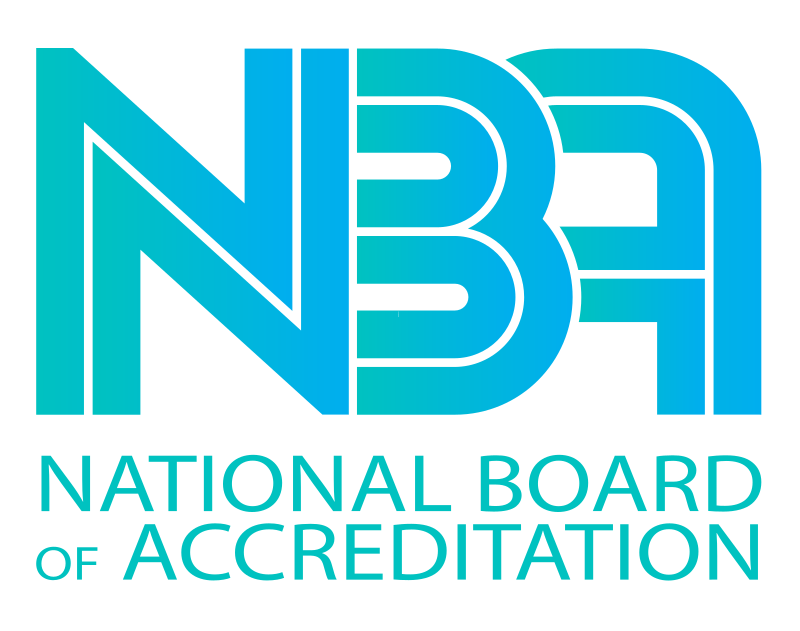Admission 2024
It is really a matter of great pleasure to welcome you in the Department of Food Technology of Guru Nanak Institute of Technology which has sustainably emerged as one of the premier educational institute in the field of Food Technology in West Bengal. The department has NBA accreditation since 2014. Since its inception in 2006 with an intake of 60 students the department has undergone continual improvement by organizing several EDP, Seminar, conference, workshop, and symposium. We offer a blended learning management system to bring together the progressive sustainable management & technical skills of the industry along with academic expertise of highly experienced and Ph. D. faculty members to disseminate knowledge on the various newer advances and developments in the Food Processing Sector and to emphasize on the different Processing Technologies and its relevance not only to the state level but also to the national and international level. Furthermore students of the department published research papers in different reputed National and International journals, presented Research paper in National/International seminar/ conferences, workshop, and symposium with the guidance of faculty members and awarded also in different oral/poster/ quiz/ Competition held in IIT-KGP, JU, BHU, FOSET, etc.

6 Years

It is really a matter of great pleasure to share a few words about the Department of Food Technology of Guru Nanak Institute of Technology which has established itself as a leading educational institute in the field of Food Technology in West Bengal. It’s very impressive to share that the department received the honor and benchmark accreditation of National Board of Accreditation (NBA) for 6 Years (2022-23 to 2027-28 under tier 1).
Since its establishment in 2006, the department has continuously strived for improvement, organizing various programs such as entrepreneurship development programs (EDP), seminars, conferences, workshops, and symposiums. This demonstrates a commitment to providing students with holistic development.
The potent attributes of the Department are:
Some noteworthy accomplishments by the Department include securing a Rs. 50 lakhs grant from the Ministry of Food Processing Industries, Government of India, for infrastructural development, receiving an Rs. 18 lakhs grant from MODROB-AICTE, and obtaining a Rs. 4.0 Lakhs grant from the Department of Food Processing Industries & Horticulture, Government of West Bengal, for establishing a Food Processing Training Centre.
In addition, the Department has signed MOUs with reputed industrial ventures such as Paushtik Life, SHRM BIOTECHNOLOGY PVT. LIMITED, M/S Crushiers Fruit Juice CO., Wisdom Group, Smart Management Consultancy and Vedaantic Organic Research Foundation. Besides, the Department has collaborated with esteemed International and National institutes like The Puntland State University , Somalia and EMCTD.
The Department boasts a cadre of distinguished alumni whose achievements resonate across various sectors encompassing academia (M. Tech from Jadavpur University, IIT Kharagpur, University of Calcutta, M. S. In University of Dresden, Germany, M. Tech from NIFTEM, SLIET Punjab, IICPT Thanjavur, ICT Mumbai, MBA from IISWBM, Kolkata, MBA from Symbiosis, Pune, NIT Durgapur, ISB Hyderabad), industry (ITC Food Division, Britannia Industries Ltd., PepsiCo (India) Holdings Pvt. Ltd, Bengal Beverage (Coco Cola), Keventer Agro, India Dairy Products (AMUL), Red Cow Dairy, Almarai (UAE), Don-Limon (Germany), Nestle India Ltd. and many more), government (Food Safety Officer, Lecturer in Govt. Diploma Colleges, Food Inspector, Agricultural Marketing Officer, Jobs in FCI and FSSAI, Agriculture Officer in Govt. Banks, Agricultural Associate in SBI, DRDO, Indian Army), and beyond.
In essence, the Department of Food Technology at Guru Nanak Institute of Technology remains steadfast in its commitment to delivering a holistic and industry-relevant education to its students. I’m excited to be a part of this institution and contribute to the academic and research endeavors here.
Eighty nine percent of students say services helps them feel like they belong at GNIT
Keeping in line with the Institutional Vision, the Departmental Vision is:
To achieve its own vision the Department of Food Technology is committed to
Engineering Graduates will be able to:
Organization of Food Tech Fest: Food Envision.
Inauguration of Departmental Magazine (FT-Realista)
Industry Visit at ITC, and Pepsico.
Workshop on Awareness regarding Detection of Food Adulteration.